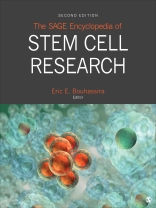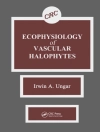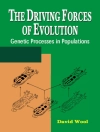The SAGE Encyclopedia of Stem Cell Research, Second Edition is filled with new procedures and exciting medical breakthroughs, including executive orders from the Obama administration reversing barriers to research imposed under the Bush administration, court rulings impacting NIH funding of research based on human embryonic stem cells, edicts by the Papacy and other religious leaders, and the first success in cloning human stem cells. Stem cell biology is clearly fueling excitement and potential in traditional areas of developmental biology and in the field of regenerative medicine, where they are believed to hold much promise in addressing any number of intractable medical conditions. This updated second edition encyclopedia will expand on information that was given in the first edition and present more than 270 new and updated articles that explore major topics in ways accessible to nonscientists, thus bringing readers up-to-date with where stem cell biology stands today, including new and evolving ethical, religious, legal, social, and political perspectives.
This second edition reference work will serve as a universal resource for all public and academic libraries. It is an excellent foundation for anyone who is interested in the subject area of stem cell biology.
Key Features:
- Reader’s Guide, Further Readings, Cross References, Chronology, Resource Guide, Index
- A Glossary will elucidate stem cell terminology for the nonscientist
- Statistics and selected reprints of major journal articles that pertain to milestones achieved in stem cell research
- Documents from Congressional Hearings on stem cells and cloning
- Reports to the President’s Council on Bioethics, and more
Про автора
Eric E. Bouhassira, Ph D, is a professor at the Albert Einstein College of Medicine in the Department of Cell Biology, the Department of Medicine (Hematology) and is also the Ingeborg and Ira Leon Rennert Professor of Stem Cell Biology and Regenerative Medicine. Dr. Bouhassira joined the Albert Einstein College of Medicine in 1990. He began studying human embryonic stem cells in 2001 and was the organizing force behind the three-year, $3 million grant for human embryonic stem cell r-research that Einstein received from the National Institutes of Health in 2005. He is director of the medical school′s Center for Human Embryonic Stem Cell Research and professor of medicine and of cell biology. Dr. Bouhassira′s research focuses on developing hematopoietic (blood forming) stem cells that can differentiate into red cells, T cells, platelets, and all other cell types that comprise blood. This work could potentially aid patients needing transfusions and also save lives by expanding the immunology diversity of hematopoietic stem cells available for transplant. Dr. Bouhassira received his BS, MS, and Ph D degrees from the Universite Pierre et Marie Curie in Paris, France, in 1989.












